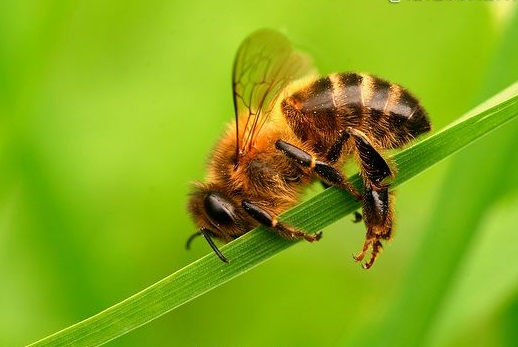Bees Stopped Buzzing During the 2017 Solar Eclipse
- Ken Ecott
- Oct 19, 2018
- 3 min read

Bees stop buzzing during a total solar eclipse
While millions of Americans took a break from their daily routines for the August 21, 2017, total solar eclipse, they might not have noticed a similar phenomenon happening nearby: In the path of totality, bees took a break from their daily routines, too.
A citizen science project led by researchers at the University of Missouri found bees stopped flying as the sun disappeared behind the moon.
To study the solar eclipse’s influence on bee behaviour, researchers organised a cadre of citizen scientists and elementary school classrooms in setting up acoustic monitoring stations to listen in on bees’ buzzing — or lack thereof — as the 2017 eclipse passed over. The results, published October 10, 2018, in the peer-reviewed journal Annals of the Entomological Society of America, were clear and consistent at locations across the country: Bees stopped flying during the period of total solar eclipse.
"We anticipated, based on the smattering of reports in the literature, that bee activity would drop as light dimmed during the eclipse and would reach a minimum at totality," Candace Galen, professor of biological sciences at the University of Missouri and lead researcher on the study.
Interestingly, there have been only a smattering of studies describing the behaviour of insects during an eclipse, which is why no one knew exactly what the bees would do. Research as far back as the 16th century had documented how eclipses have affected animals. In 1544, "birds ceased singing" during a total eclipse of the sun. Fourteen years later, "birds fell to the ground." In 1932, crickets chirped across northern New England when an eclipse darkened portions of New Hampshire, Maine and Vermont. Frogs also croaked.
Microphones hidden among flowers in specific geographic areas (Oregon, Idaho and Missouri) picked up nary a buzz. The recordings didn't differentiate between bee species, but most bees in the study were bumble bees (Bombus) and honey bees (Apis mellifera).

The data showed that bees remained active during the partial-eclipse phases both before and after totality, but they essentially ceased flying during the period of totality. Just one buzz was recorded during totality in all of the 16 monitoring locations. However, shortly before and shortly after totality, bee flights tended to be longer in duration than at times early in the pre-totality phase and late in post-totality. These longer flight duration's as an indicator of slower flight under reduced light or possibly as the bees returning to their nests. The findings suggest bees interpreted the sudden darkness as nighttime.
"The eclipse gave us an opportunity to ask whether the novel environmental context — mid-day, open skies — would alter the bees' behavioural response to dim light and darkness. As we found, complete darkness elicits the same behaviour in bees, regardless of timing or context. And that's new information about bee cognition," Galen said.
So why do we care, other than the fact that this stuff is super cool? Studying both sleep and circadian cycles in a relatively simple organism like a fruit fly or a bee can give us insight to these behaviours in general, from the relevant molecular pathways to the genes involved. There also may be ways to control pest insects by exploiting their circadian rhythms. Since circadian cycles help regulate metabolism, for example, pesticides may work better at certain times of the day.
Further reading: Observations on the Behavior of Animals during the Total Solar Eclipse of August 31, 1932


Comments